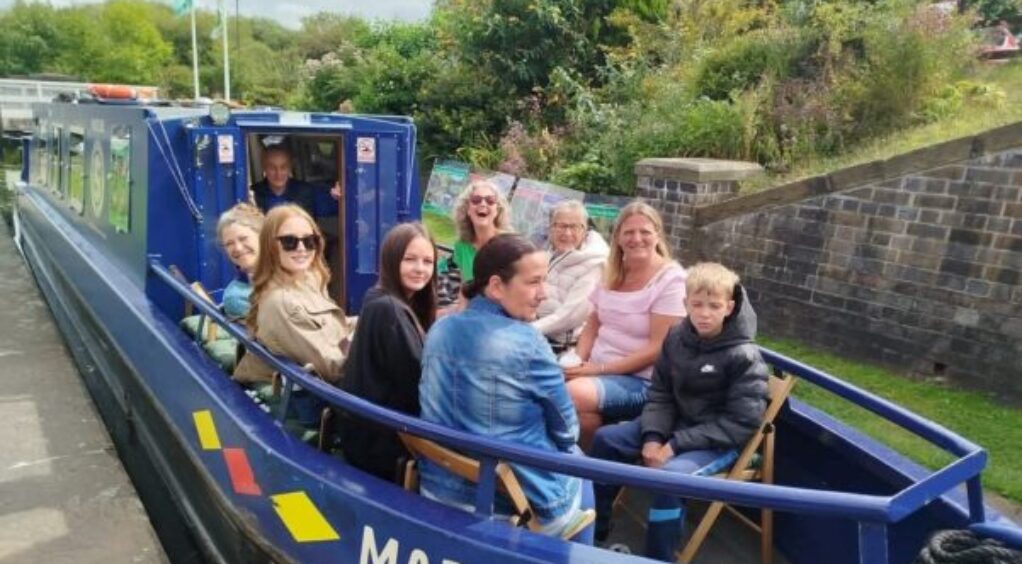Flagship ‘Insights’ tool to help NHS listen more deeply developed in Derbyshire
A FLAGSHIP tool to help the NHS and partners listen more deeply to communities is being piloted in Derby and Derbyshire.
The aim of the Community Insights Framework is to improve services by being able to talk to people more effectively, removing hierarchy and truly listening to people’s needs, providing a safe space for people to talk.
The resource helps with advice across five areas of engagement: understanding power, enabling social action, building a picture of community experiences, needs, ideas and ambitions, connecting community and the integrated care system and making a difference together.
It is a series of practical actions which help people consider their behaviours when carrying out engagement work.
Andrea Kemp, Insights Manager at the ICB who leads on the framework, said: “We’re passionate about involving people and communities in everything we do in the NHS, especially when we’re commissioning services.
“The Framework was developed by Jessie Cunnett, a leading practitioner in Health Inequalities and community engagement, along with local partners. It is a reference point for anyone in the system to check in and think about how they are involving the public right from the start of a piece of work or project.
“It helps give a structure to some of those questions we all have about how best to go about this. It’s great to see it’s being used already in different ways and making a difference for patients, ensuring their voices are being heard and their experiences understood more effectively.
“I’d urge anyone who is working with the public to take a look and think about some of the key questions it asks and suggestions about how to use the best approaches and techniques.”
Sara Bains, Wellness, resilience and inequalities lead for Erewash Primary Care Network, used the tool when she worked with a breakfast club and mental health self-help groups.
She said it had helped her consider how she introduced herself, the language and conversation she had with people and how she presented herself.
“When I started this work, I felt vulnerable,” she said. “I walked into that room and wasn’t sure how I should talk to people or what was appropriate, it was their space I was visiting. The framework gave me a place to refer to and made me feel comfortable with the approach I was taking.”
Sara attended the local groups for several weeks with the aim of understanding people’s lives and the barriers that impact on their health.
She wrote a journal and thematic analysis afterwards and shared with her PCN to help inform decision-making at their practices.
“The power balance aspect of the tool was the one that helped me the most because I was very conscious of being from the NHS and the power and barriers which that presented. I thought about where to say I was from and decided to just say “I’m Sara from the NHS and I’ve just come to hear what things are like for you”.
“Once I’d built trust with the groups, they were very willing to talk about their health and then we were able to deliver some health checks which were much needed. Without the time to build the trust it wouldn’t have been as well received.”
Sara compared her themes with the qualitative data from across the NHS and partners.
The top issues – loneliness and social isolation – were not reflected in local data, illustrating the need to ensure people themselves are regularly asked about their experiences as well.
Sara said: “Our hard data doesn’t tell us how we feel about our lives, the hopelessness and helplessness. It doesn’t tell us what people do to stay well either or how people stay active and that is an important part of understanding what’s working for people as well as what isn’t. There’s a lot of work still to do on data collection and use.”
A peer learning group, which anyone using the Framework and other similar engagement tools in Derby and Derbyshire can join, also meets regularly.
Sara said: “The group was crucial. I would have wobbled without it, and it was somewhere to keep going back to with sense checks and for support.”
Natalie Peace and Donna Booth, who run Growth Activities, have also used the framework.
They are aiming to create a proud, healthy, thriving community through focusing on the community’s wellbeing, the development of opportunities, education and training in Staveley, Chesterfield and the surrounding area.
They have used the Insights Framework to inform their community engagement.
Natalie said: “Having a framework to refer back to, to guide the way we’ve had conversations with people has been really useful.
“In Barrow hill, we’ve done a lot of work to understand the barriers with NHS services and really look at what is provided by the NHS through the eyes of people in an underserved community with poorer health outcomes. How does it work for them, why doesn’t it work and how could it be improved? Not through organisations or silos but for real people with complicated lives.
“Using this framework, we’ve been able to meet people where they are at and ensure time and space to properly listen, understand and take action together.”
The outcome in Barrow hill is that people have started to grow their own community groups and developed a greater sense of ownership about what is provided in their community, what they need and how it can be sustained locally for the future.
The Barrowhill Memorial Hall is currently being refurbished, and it is hoped will become a community hub offering a wide range of local amenities, including a food pantry offering accessible and affordable food and potentially health services.

